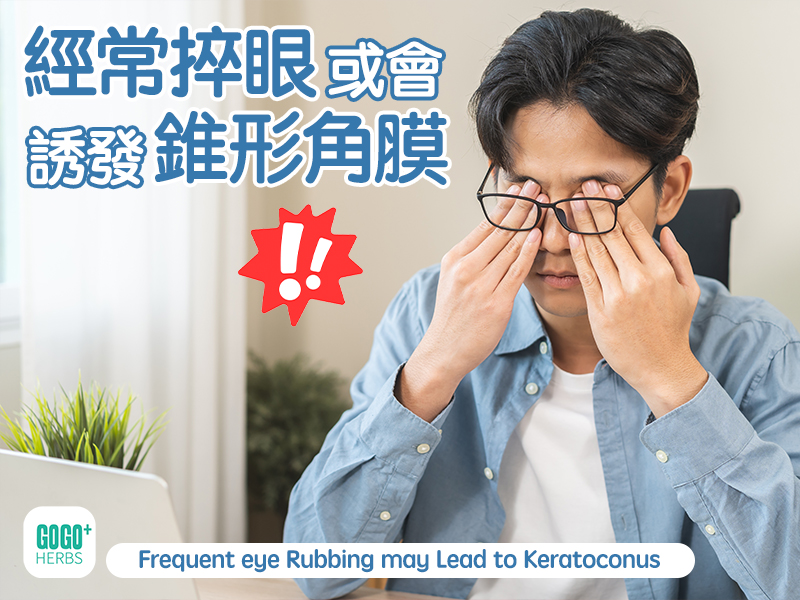Many people have a habit of rubbing their eyes, especially upon waking, and it's easy to unconsciously rub them. However, you may not know that frequent rubbing of the cornea can cause deformation, potentially leading to keratoconus, a condition that can cause blindness. Keratoconus can take decades to develop and worsen, and its symptoms are similar to other eye diseases, making it easy to overlook. Doctors warn that if nearsightedness or astigmatism worsens rapidly in a short period, it could be a sign of this condition.Eye sensitivityPeople with allergies such as asthma and eczema are at even higher risk.
Ophthalmologist Dr. Chen Songen explained that conical keratosis is characterized by a central bulge of the cornea outwards, giving it a cone-like shape. Patients may experience myopia, astigmatism, etc.Blurred visionSymptoms include glare, acute corneal edema, and in severe cases, even blindness. Asians are four times more likely to develop this disease than Caucasians. People who frequently rub their eyes, have eye allergies, asthma, eczema, or a family history of the disease are more prone to developing keratoconus. The disease can take 10 to 20 years to progress from onset to progression.
The Hong Kong College of Ophthalmologists and the Hong Kong Ophthalmological Society conducted a survey of 103 members of the public regarding their knowledge of keratoconus between August and November this year. The results showed that over 40% of respondents frequently...The habit of rubbing eyesTwo-tenths of the respondents rubbed their eyes three or more times per hour, but more than half of them were unaware that rubbing their eyes could lead to keratoconus. Ms. Mai, 26, has suffered from eczema and eye allergies since childhood, with myopia of 600 degrees and astigmatism of 75 degrees. She is prone to eye allergies after swimming and often rubs her eyes. When removing her contact lenses, she sometimes even rubs them forcefully to "rub" them out.
At the beginning of this year, Ms. Mai began experiencing blurred vision, and her astigmatism suddenly increased to 175 degrees. She initially thought it was due to excessive screen time and even planned to have laser vision correction surgery. However, during pre-operative examinations, she was diagnosed with keratoconus and needed corneal collagen cross-linking surgery to improve her condition. Chen Songen pointed out that generally, early-stage conditions can be corrected with glasses or soft contact lenses, but later-stage conditions may require corneal transplantation. Furthermore, corneal collagen cross-linking surgery can also prevent the condition from worsening and further corneal deformation.
Although keratoconus is difficult to detect, ophthalmologist Dr. Wu Li-chi suggests paying attention to whether your astigmatism worsens in a short period, whether distant objects become particularly blurry, or whether you experience headaches, dizziness, or double vision. However, it's important to note that a rapid increase in astigmatism can be caused not only by keratoconus but also by corneal aging or cataracts. Therefore, if these symptoms occur, you should seek medical attention as soon as possible.


